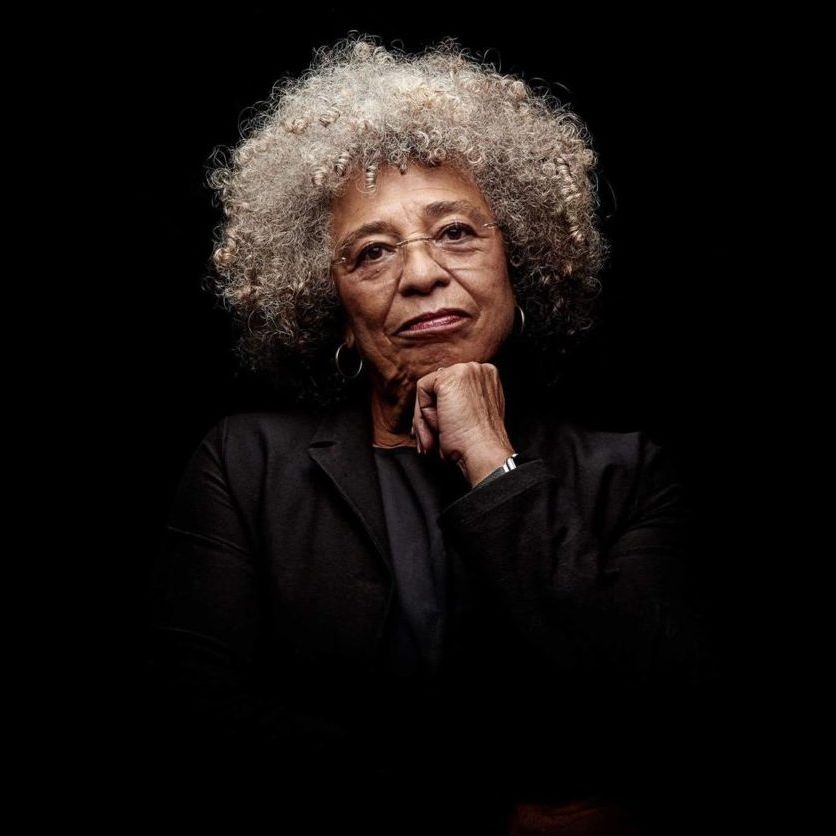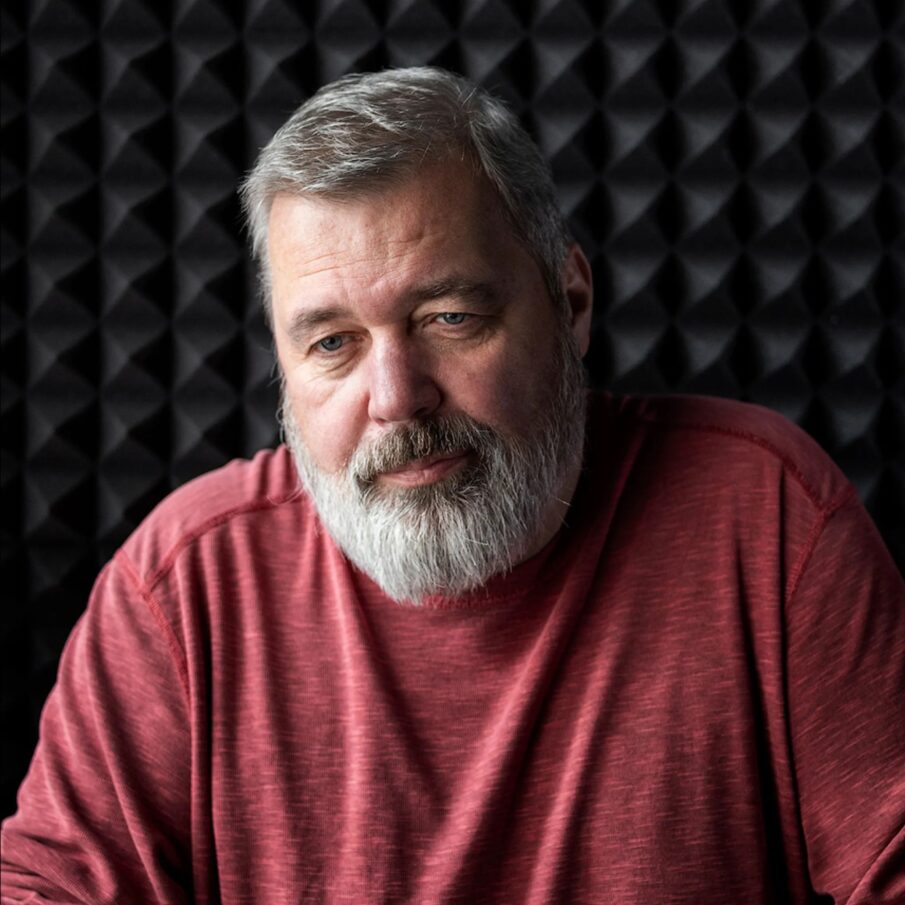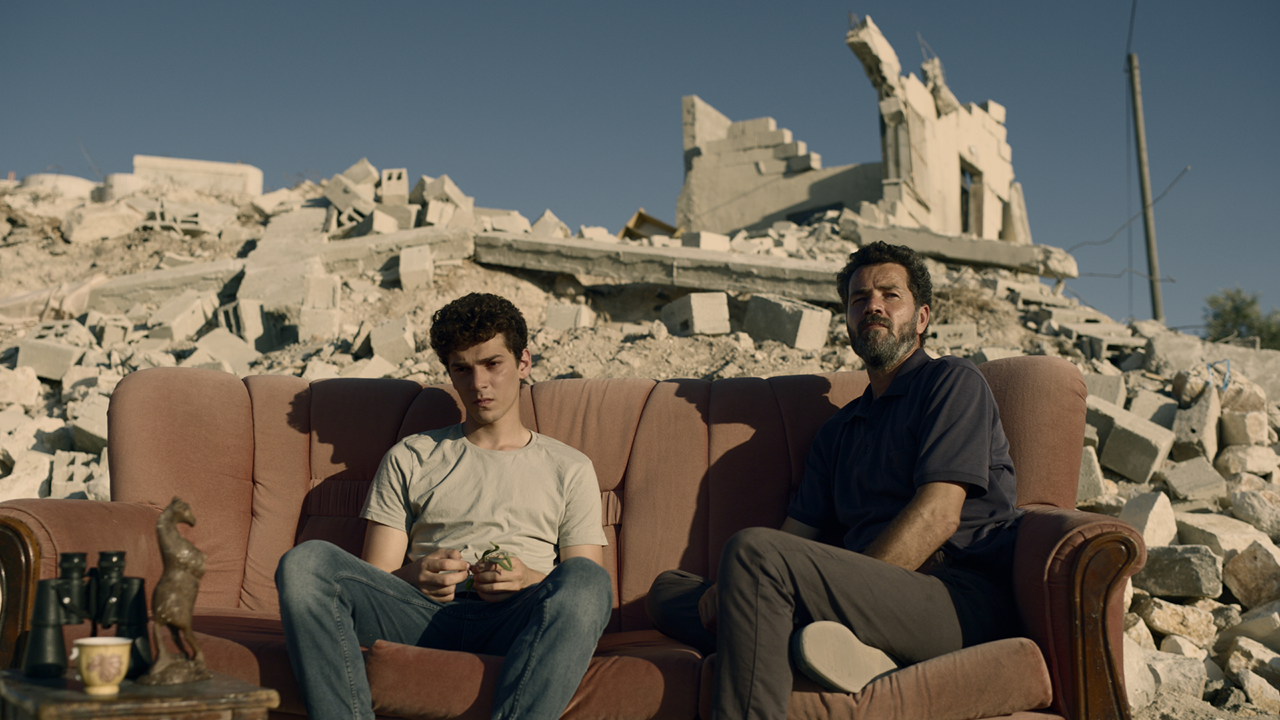FIFDH unveils the programme for its 22nd edition

The curtain rises on the 22nd edition of the International Film Festival and Forum on Human Rights in Geneva. The 2024 programme will seek to outline the contours of a better future by harnessing the power of cinema and the influential voices of human rights
Among them, the Festival will host American activist Angela Davis, Russian journalist and Nobel Peace Prize laureate Dmitry Muratov and Palestinian photojournalist Motaz Azaiza.

Angela Davis
Writer, philosophy teacher, human rights activist

Dmitry Muratov
Former editor-in-chief Novaïa Gazeta and 2021 Nobel Peace Prize laureate

Motaz Azaiza
Palestinian photojournalist
Between resistance and revolt: the power of images
How do we make sense of our era? In a world characterised by the interconnection of geopolitical, economic, and social crises, alongside the erosion of multilateral institutions and the global climate crisis, uncertainty pervades. “In the midst of every upheaval, there exists a disruption of our sense of direction; yet, it is within these circumstances that new pers- pectives emerge. The strength of an event such as the FIFDH lies in its ability to unite those who aid us in deciphering the intricacies of the world, reflect on collective solutions and remind us of the need to take action.” assert Laila Alonso Huarte and Laura Longobardi, co-editorial directors
During ten days, spanning from March 8 to 17, the Festival will set the stage for meaningful dialogue while leveraging the transformative power of cinematography to portray the lived experiences of individuals who embody human rights, and showcase their commitment in dynamic and palpable manner — all in service of a collective future. Within the framework of the 2024 FIFDH, this ethos is epitomised by the introduction of a new Forum segment entitled Spotlight. The segment focuses on the commitment of filmmakers and film protagonists, sharing actionable insights and inspiring audience engagement.
Cinema following the paths of those that resist

An Unfinished Journey
The journey commences with an exploration of the plight of Afghan women following the Taliban’s return to power. FIFDH will host the world premiere of An Unfinished Journey by Amie Williams and Aeyliya Husain, documenting the experiences of several Afghan women leaders forced into exile. Following the screening, there will be a discussion featuring former Afghan minister Nargis Nehan.
Another cinematic manifestation of resistance is evident in the world premiere of Of Caravan and the Dogs by Askold Kurov and Anonymous 1, portraying the struggle of the independent Russian newspaper Novaïa Gazeta, a bastion of free press within a dictatorial and war-torn state. Its former editor-in-chief and 2021 Nobel Peace Prize laureate Dmitry Muratov, will be in Geneva for a discussion on Russian civil society — just a week before the country’s presidential election.
FIFDH’s selection spotlights the Uighur resistance against the Chinese regime with David Novack’s film All Static & Noise, featuring activist Jewher Ilham, daughter of imprisoned Uighur economist Ilham Tohti. Similarly, the Iranian uprising is portrayed in Mehran Tamadon’s Where God Is Not, capturing the testimonies of three Iranian dissidents on the subject of torture. Journalist Taghi Rahmani, a key figure in the film and husband of Nobel Peace Prize laureate Narges Mohammadi, will attend the Festival.
In the realm of fiction, director and actress Paola Cortellesi’s feature film There’s Still Tomorrow delves into patriarchal violence and the underbelly of post-war Fascist Italy. A feminist narrative that has captivated audiences and critics alike, in Italy.
The war as seen by filmmakers and photographers

The Teacher, de Farah Nabulsi
Image-based resistance also comes from Palestinian filmmakers and journalists, witnesses of the conflict in the Middle East, whom FIFDH will give a platform. Firstly, with the exceptional presence at the Festival of Gaza photojournalist Motaz Azaiza, who, for four months, brought light to the horrors of war in Gaza through his images published on social media platforms. Palestinian filmmakers Farah Nabulsi, with the fiction film The Teacher, and Mohamed Jabaly, with the documentary Life is Beautiful, will also present their stories at the Festival, offering their perspectives on the current situation.
Voices of hope will be those of Palestinian and Israeli peace activists Ali Abu Awwad and May Pundak, engaging in dialogue to discuss possible common futures. With The First 54 Years — An Abbreviated Manual for Military Occupation, prominent Israeli filmmaker Avi Mograbi will offers an insight into the operation, logic and practices of a colonialist occupation. This 22nd edition of FIFDH will also delve into the resurgence of antisemitism, questioning whether it constitutes a blind spot in the anti-racism movement.
Placing Human Rights back at the forefront of politics and action

Angela Davis
FIFDH’s Forum will carry the torch of resistance and hope through the presence of prominent voices in human rights. Firstly, with an iconic figure in the fight for civil rights: the American activist Angela Davis will participate in a discussion on systemic racism and police brutality, alongside, the French activist Assa Traoré.
The Forum will examine our societies, characterised by various forms of exclusion and domination. It will delve into the rise of BRICS and the weakening of the Western global order, question the dangers and regulation of artificial intelligence, and explore the intersections between the environment, rights of living beings, and human rights. These crises converge and intersect, reflecting contemporary challenges and struggles.
These thought-provoking issues shall be explored by the Malian politician Aminata Dramane Traoré, British columnist George Monbiot, French trade unionist and politician Philippe Poutou, French environmental activist Claire Nouvian, Indian economist Jayati Ghosh and American academic Bernard Harcourt.
A commitment to young audiences

Young Audience Programme
FIFDH continues its actions to reach diverse audiences through the medium of its programmes in correctional and hospital settings, as well as its international Human 75 Rights Film Tour. This year, the Festival is particularly focused on nurturing its commitment to engaging with children and the youth, offering content tailored to their group (from 6 years old). In addition to the school programme, sessions are offered to families in partnership with La Lanterne Magique and the Cinémas du Grütli, providing them with tools to better grasp and understand the issues related to human rights, from a child’s perspective.
Supporting impactful cinema from production to distribution

Diego Luna, mexican actor
In addition to the creation of a new section Spotlight developed to launch high-impact films, FIFDH continues to support film projects in the production phase employing its professional programme, Impact Days, which engages over 150 filmmakers from around the world. This year, the Festival will host Mexican actor Diego Luna, who is involved in a project aimed at highlighting the dire state of press freedom in Mexico, particularly during a year marked by significant elections in the country.
Moreover, through strengthened partnerships with numerous NGOs operating worldwide, FIFDH promotes the use of films in the advocacy and awareness-raising efforts of these organisations. This initiative unveils new avenues for distributing socially engaged cinema.
A Festival which looks towards the future
With a new co-direction in place, FIFDH concluded a new four-year agreement with the City of Geneva at the end of 2023 and has received increased support from the Canton of Geneva. “FIFDH can take pride in the strong trust of its stakeholders, which is reflected in reinforced partnerships geared towards the future. This includes collaborations with four major NGOs — Amnesty International, OMCT, Caritas Switzerland, and Helvetas — as well as significant international partners, including the Ford and Rosa-Luxembourg Foundations. It’s worth noting that 40% of FIFDH is funded by swiss foundations and philanthropic organisations, which have committed to supporting its programmes over several years, such as The StoryBoard Collective” says Guillaume Noyé, operational and administrative director.
With a budget of 2.5 million Swiss francs, FIFDH reaffirms its commitment to solidifying its position as a vital space for meetings, networking, and exchanges on human rights issues. FIFDH acknowledges the unwavering support of its partners, audiences, guests, and volunteers, and eagerly awaits the profound impact the programme of this 22nd edition will undoubtedly have.